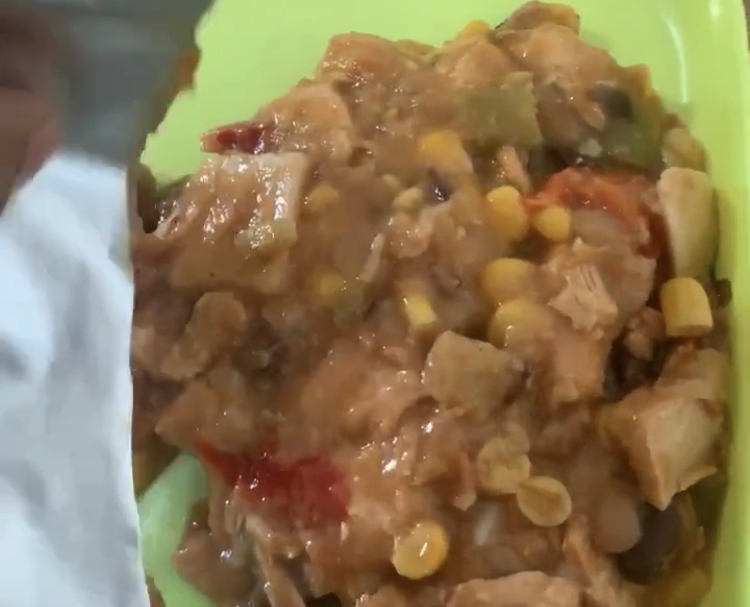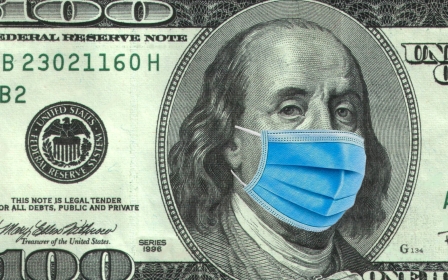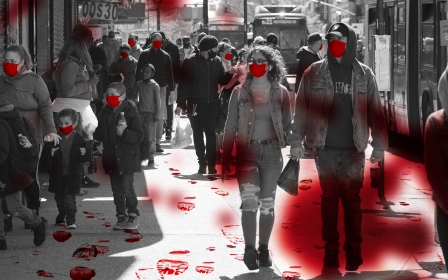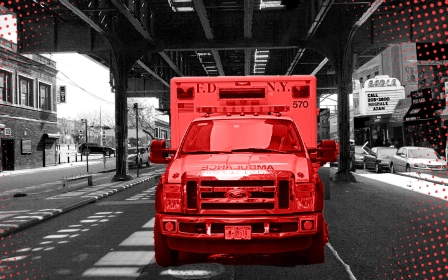New York Muslims raise concerns about substandard Ramadan meals

Earlier this month, New York City Mayor Bill de Blasio announced the city would be delivering 500,000 free meals to Muslims during the month of Ramadan.
"One of Ramadan's most noble callings is to feed the hungry," de Blasio said.
Still, when Rima Begum opened the iftar meal she received from the city, she recoiled in disgust. Oozing from a sealed silver bag was a mush of corn, chicken and potatoes.
"It reminded me of how when I was a kid you would learn about astronaut food," Begum told Middle East Eye. "I wouldn't eat this; I wouldn't give this to my family," she said.
New MEE newsletter: Jerusalem Dispatch
Sign up to get the latest insights and analysis on Israel-Palestine, alongside Turkey Unpacked and other MEE newsletters
De Blasio had said that 400,000 halal meals would be distributed at 32 Department of Education buildings and another 100,000 served through various community organisations during the holy month.
The meals being distributed directly from the city are available at 32 grab-and-go sites, and for those that cannot pick up the meals in-person, they are delivered through the NYC Food Delivery Assistance programme.
It was through this delivery programme that Begum received what she described as a "pile of goop".
"We'd like transparency on how the city government procures food for both their Get Food NYC program and NYC Food Assistance," Thahitun Mariam, a community organiser in Bronx, New York, told MEE.
When it came to meals distributed through community organisations, there was a different picture.
Linda Sarsour, a community activist and former executive director at the Arab American Association of New York, said that the meals distributed through AAANY came directly from the city and were of good quality.
It is the difference in food sourcing that has caused concerns among New York residents and community activists.
Purchasing meals from a defence contractor
The food received by Begum and others from one of the city's distribution centres, and not from a community organisation, originated from J&M Halal Foods, a company based in Illinois.
The company said that it was founded in 1991 to provide meals to the US military.
The meal shown in a social media post by Begum is identical to J&M's Meals Ready to Eat (MRE) kits, which are foil pouches containing 227 grams of preserved food.
"As a vital defence contractor, J&M shipped more than thirty (30) million MREs throughout the world in support of military operations," the company's website says.
The New York City Department of Sanitation told MEE that J&M is not a vendor for its Emergency Food Home Delivery programme, and that it was investigating the matter.
"I can tell you that we take these kinds of concerns very seriously," Joshua Goodman, the department's assistant commissioner for public affairs, said in an email.
"We have strict requirements about nutrition and food quality, and if a vendor is supplying food that is not up to our standards, their contract will be terminated."
J&M has yet to respond to MEE's request for comment.
Lack of representation
It is a lack of representation, even at the local level, that causes problems such as this, Moumita Ahmed said.
Ahmed, who is running for district leader for New York's Assembly District 24, said that some of the meals were "disrespectful" and a waste of taxpayer money.
Jamaica, Queens, the community where Ahmed is seeking office, has a large South Asian population - mostly of Bangladeshi origin. Still, the community has yet to elect a leader from this background.
She pointed out that the money spent on these meals could have gone to local restaurants that have been providing meals for Muslims during Ramadan for years.
"Our communities deserve better. Our communities deserve more than just goop in a plate," Ahmed told MEE.
"We are the richest country and the richest state on the planet. We have the ability to provide quality meals to our Muslim families who are observing Ramadan," she added.
Middle East Eye delivers independent and unrivalled coverage and analysis of the Middle East, North Africa and beyond. To learn more about republishing this content and the associated fees, please fill out this form. More about MEE can be found here.





